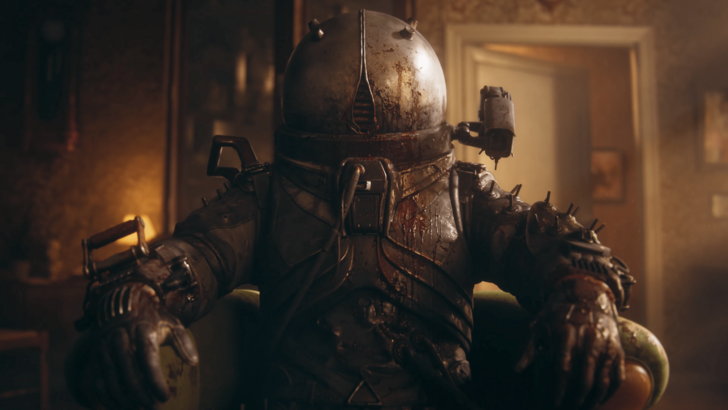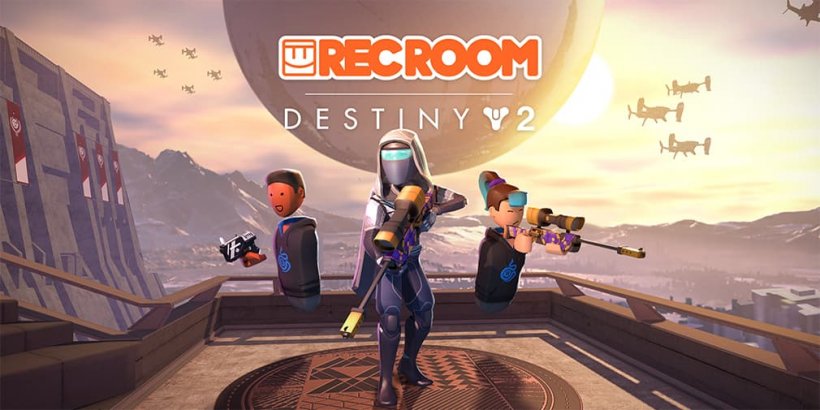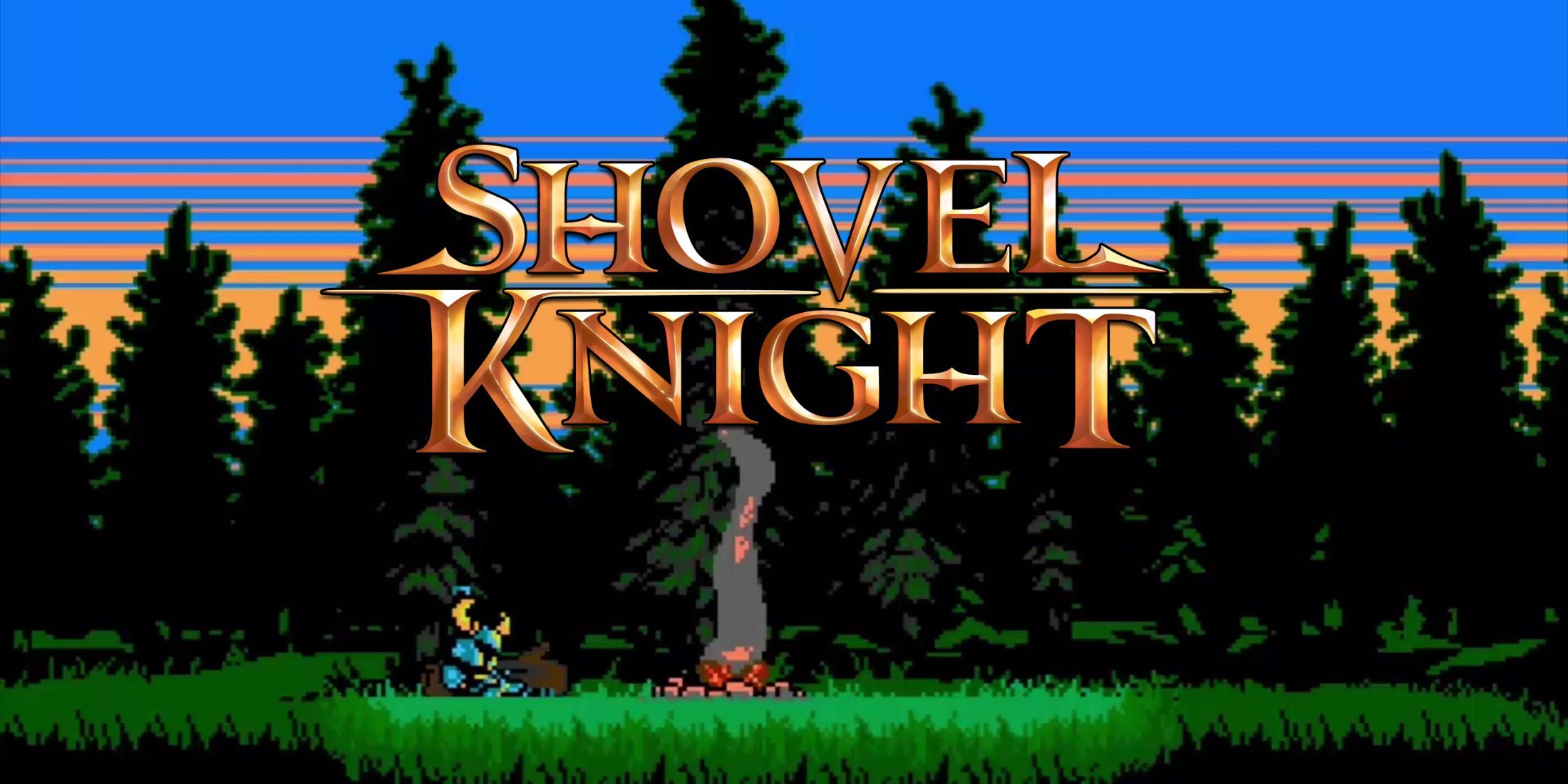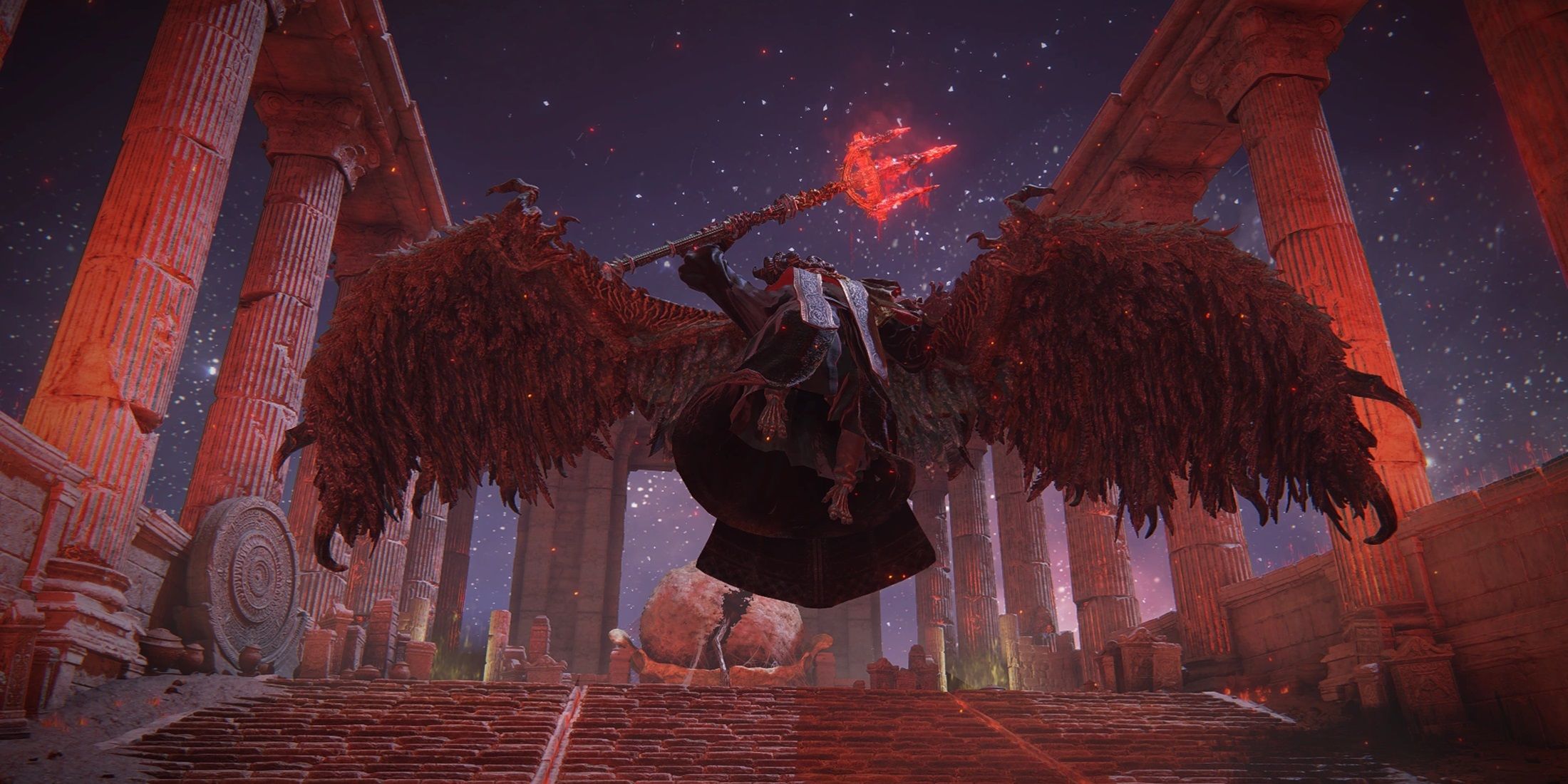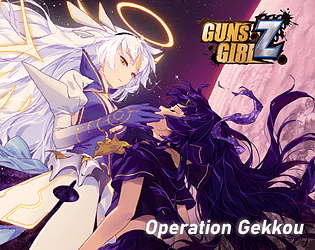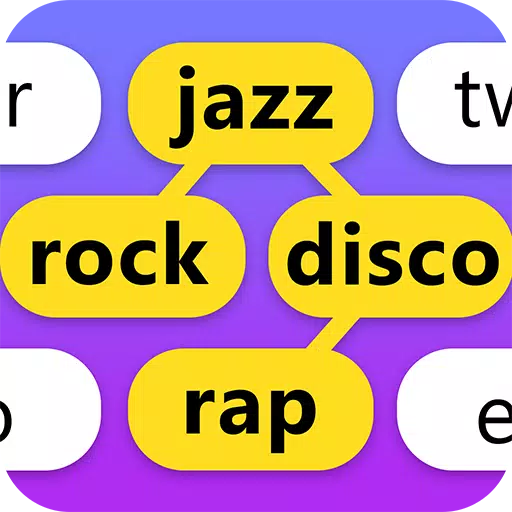Originally a spin-off of the Shin Megami Tensei series, the Persona franchise has evolved into a major force in the world of modern RPGs. With its expansive universe that spans multiple sequels, remakes, anime adaptations, and even stage plays, Persona has become a multimedia phenomenon that continues to captivate audiences worldwide. The latest installment, Persona 3 Reload, available on PlayStation 5, Xbox Series X, and PC, is drawing in new players eager to dive into this captivating series. In this comprehensive guide, we'll explore every mainline game and spin-off, offering insights on the best starting points for newcomers and detailing both the chronological and release order of the series.
Jump to:
- How to play in order
- How to play by release date
- Upcoming releases
How Many Persona Games Are There?
The Persona franchise boasts a total of twenty games. These include mainline entries as well as expanded versions through re-releases and remakes that introduce new story content. We'll detail each alternate version of the games in the lists below, excluding direct ports and remasters.
Which Persona Game Should You Play First?
For those new to the series, starting with Persona 3 Reload, Persona 4 Golden, or Persona 5 Royal is highly recommended. These are the most recent iterations of the third, fourth, and fifth mainline games, respectively, and are available on PC and major consoles, with the exception of Persona 3 Reload on Nintendo Switch. Each of these games presents a standalone story with new characters, making them ideal entry points for newcomers. To decide which one suits you best, take a look at gameplay videos and explore the social links featured in each game to find what resonates with you.
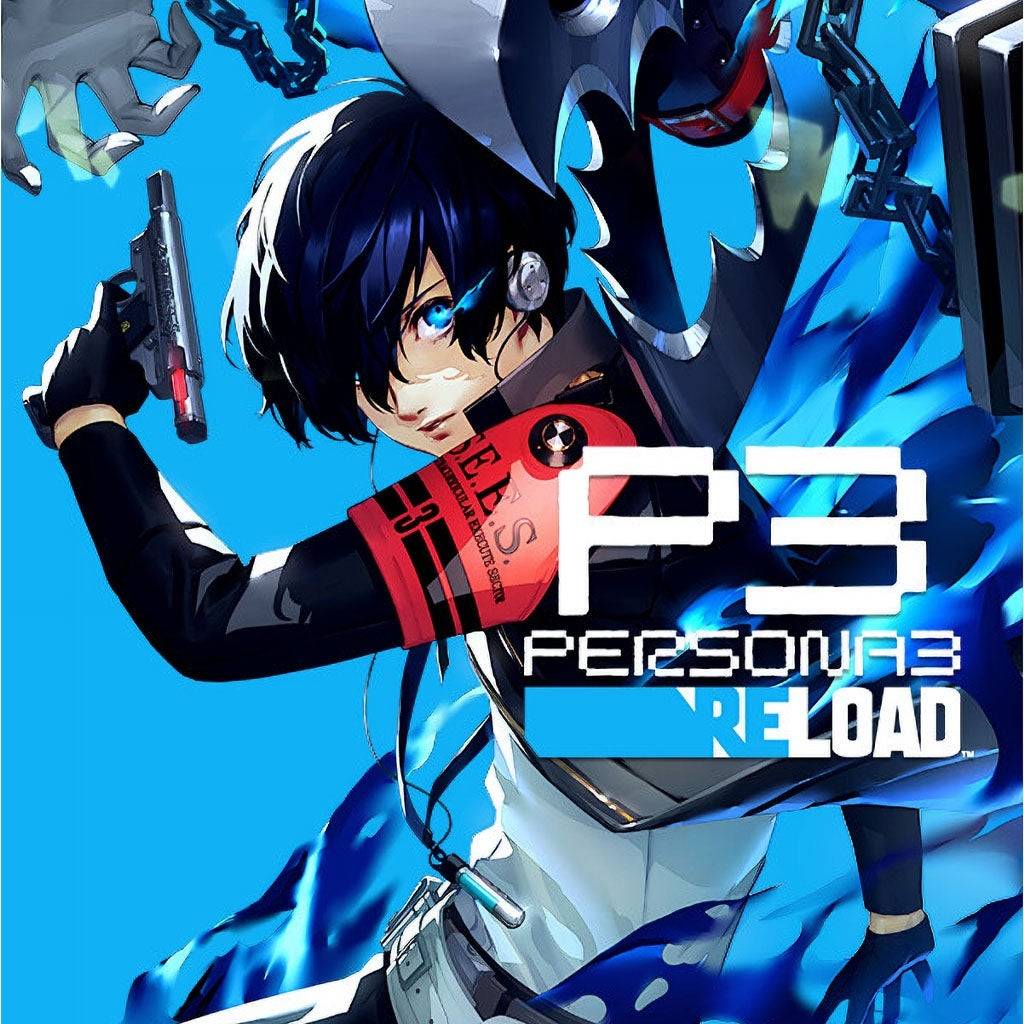
Persona 3 Reload
54 Available on PS5, PS4, and Xbox Series X. See it at Amazon
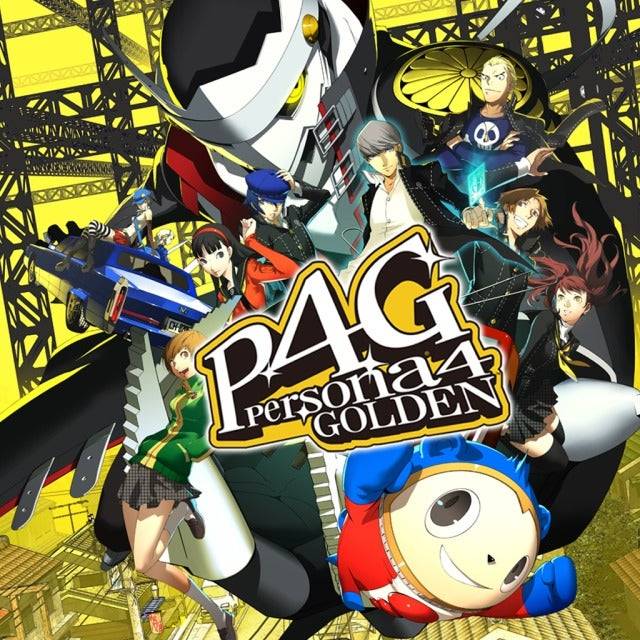
Persona 4 Golden
42 Available on PC, Xbox, PS5, and Nintendo Switch See it at Nintendo

Persona 5 Royal
103 Available on PC, Xbox, PS5, and Nintendo Switch See it at Amazon
Every Persona Game and Spin-Off in Chronological Order
The following summaries contain mild spoilers for each game, including information about characters, settings, and key story elements.
1. Revelations: Persona (1996)
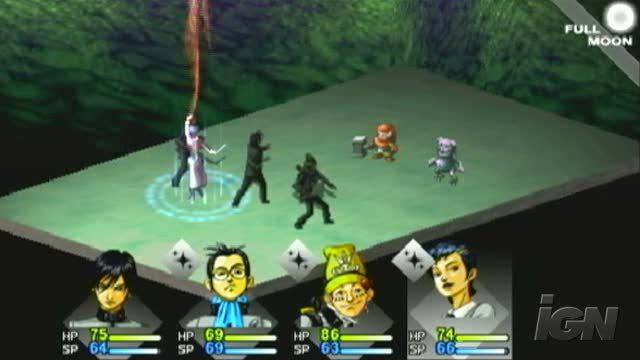
The inaugural game of the series, Revelations: Persona, was inspired by the positive reception of Shin Megami Tensei: If…, another high school-themed spin-off. This game introduced players to a full-fledged RPG where a group of high school students battles a supernatural threat in Mikage-cho. Utilizing their awakened Personas, the students combat shadows in dungeons, level up, and lay the groundwork for the series' signature elements like Persona combat, the Velvet Room, and a teenage cast of heroes.
2. Persona 2: Innocent Sin (1999)
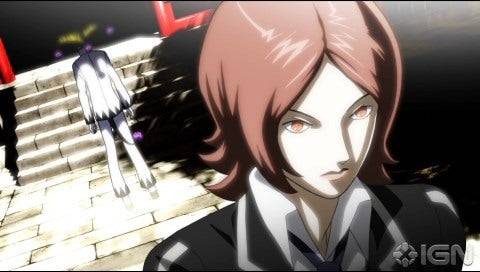
Persona 2: Innocent Sin introduced a new group of high school students, led by Tatsuya Suou, who confront the villainous Joker and the Masked Circle cult. The game revolves around a plot where rumors in Sumaru City manifest into reality, blending dungeon exploration, Persona battles, and shadow encounters. Notably, it received a direct sequel, Persona 2: Eternal Punishment, a year later.
Read our review of Persona 2: Innocent Sin.
3. Persona 2: Eternal Punishment (2000)
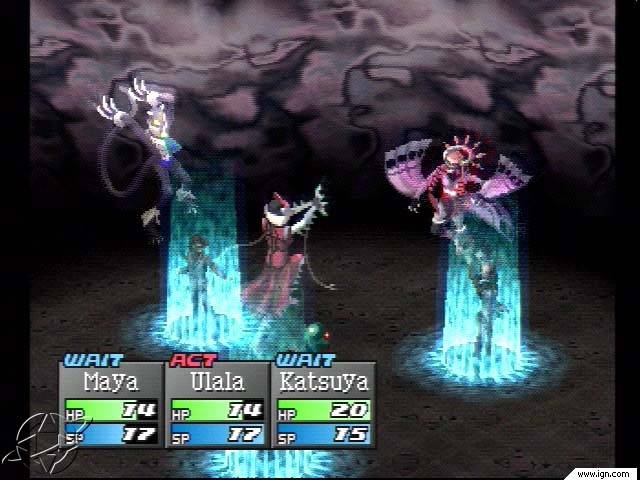
Following the events of Innocent Sin, Eternal Punishment shifts the spotlight to Maya Amano, who becomes the protagonist. Tasked with investigating the Joker Curse, Maya and her allies face familiar foes in a direct continuation of the story. The game retains the series' turn-based, dungeon-crawling gameplay, focusing on Persona battles and party development.
Read our review of Persona 2: Eternal Punishment.
4. Persona 3 (2006) / Persona 3 FES (2007) / Persona 3 Portable (2009) / Persona 3 Reload (2024)
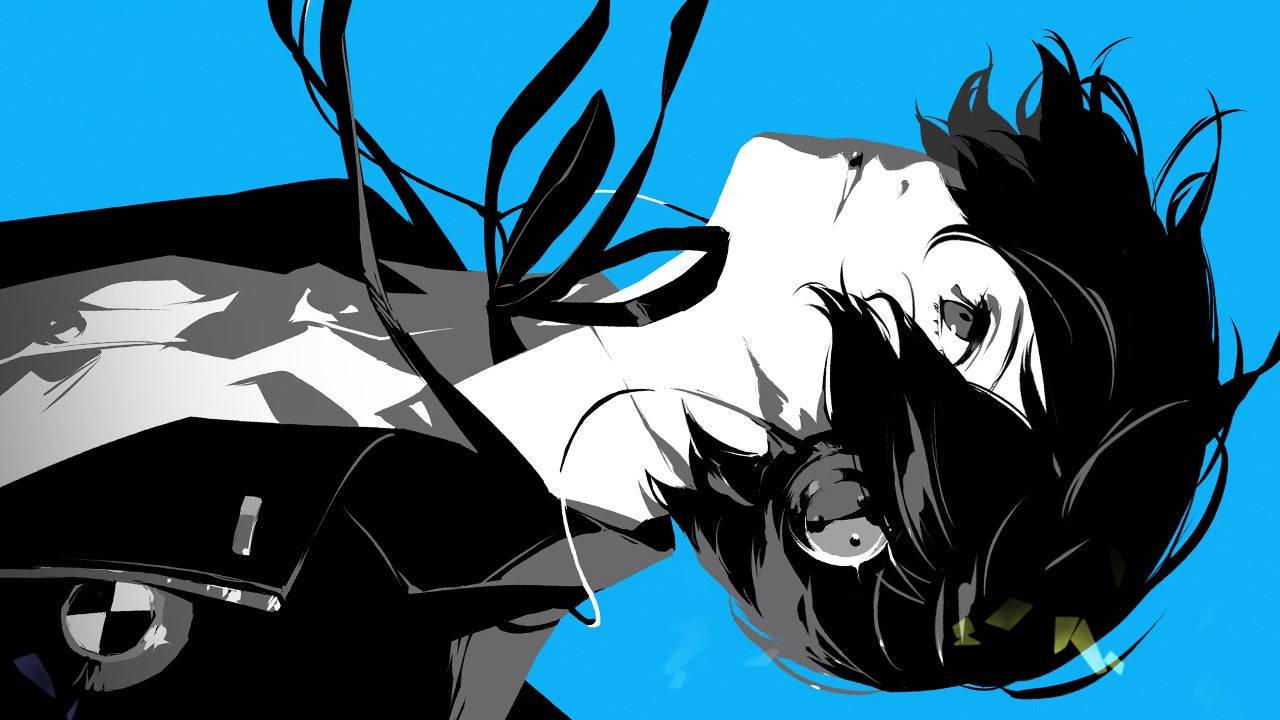
Persona 3 marked a significant evolution in the series, introducing a daily calendar system that balanced school life, social interactions, and battling shadows in the mysterious realm of Tartarus. The story follows Makoto Yuki, who navigates the Dark Hour and uncovers a sinister plot. This entry introduced social links and day-to-day activities, becoming a cornerstone of the franchise.
Read our review of Persona 3 Reload.
Alternate Versions of Persona 3:
Persona 3 has been re-released multiple times. Persona 3 FES added The Answer and a female protagonist route, Persona 3 Portable included the female protagonist but omitted The Answer, and Persona 3 Reload is a modern remake of the base game, excluding The Answer and the female protagonist route.
5. Persona 3: Dancing in Moonlight (2018)
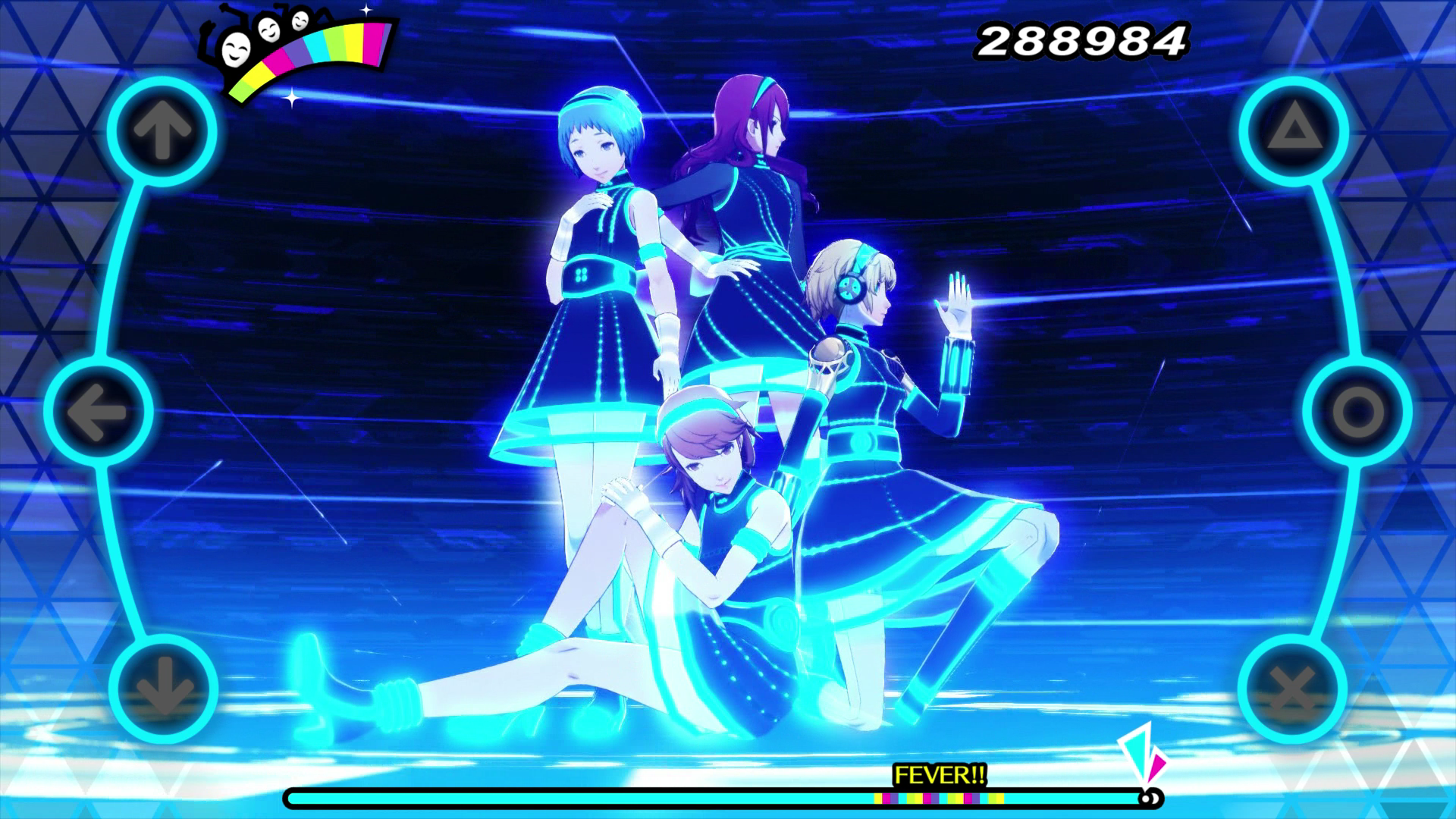
This rhythm-based spin-off features the S.E.E.S team in a dance-off within the Velvet Room, set during a dream sequence that's canon to the main story. Players perform dance routines to iconic Persona 3 tracks.
6. Persona 4 (2008) / Persona 4 Golden (2012)
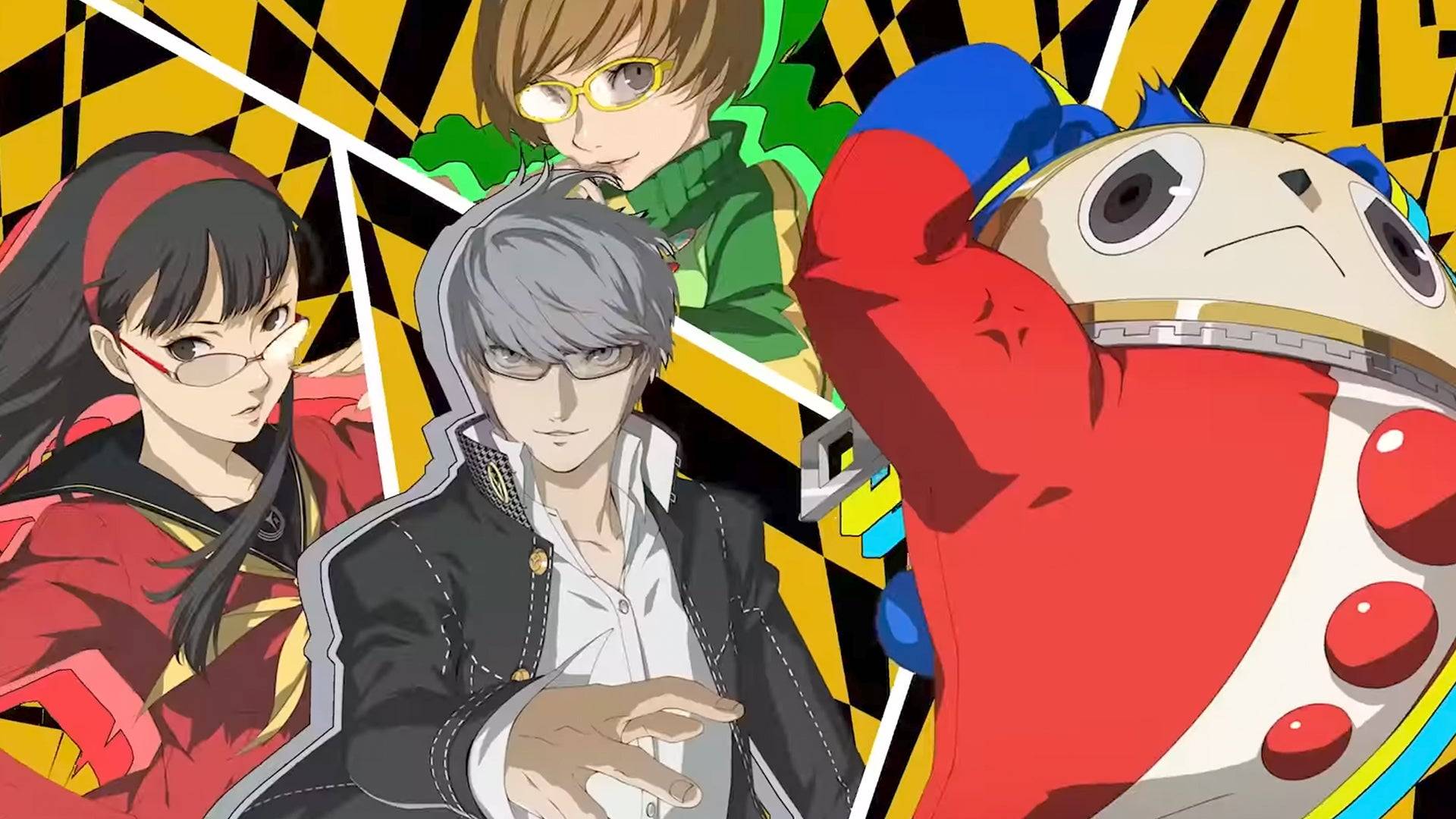
Set in the rural town of Inaba, Persona 4 follows Yu Narukami as he investigates a series of murders linked to a mysterious otherworldly realm accessible through TV monitors. The game builds on Persona 3's mechanics, using a calendar system to balance school life, social links, and dungeon exploration.
Read our review of Persona 4 Golden.
Alternate Versions of Persona 4:
Persona 4 Golden, released in 2012, expanded the original game with new story content and an additional dungeon, widely regarded as the definitive version.
7. Persona Q: Shadow of the Labyrinth (2014)

A crossover between Persona 3 and 4, Persona Q: Shadow of the Labyrinth occurs during specific segments of both games' timelines. The S.E.E.S team and the Investigation Squad are trapped in a warped version of Yasogami High School, exploring a labyrinth and battling new enemies in a nod to the series' dungeon-crawler origins.
Read our review of Persona Q: Shadow of the Labyrinth.
8. Persona 4 Arena (2012)
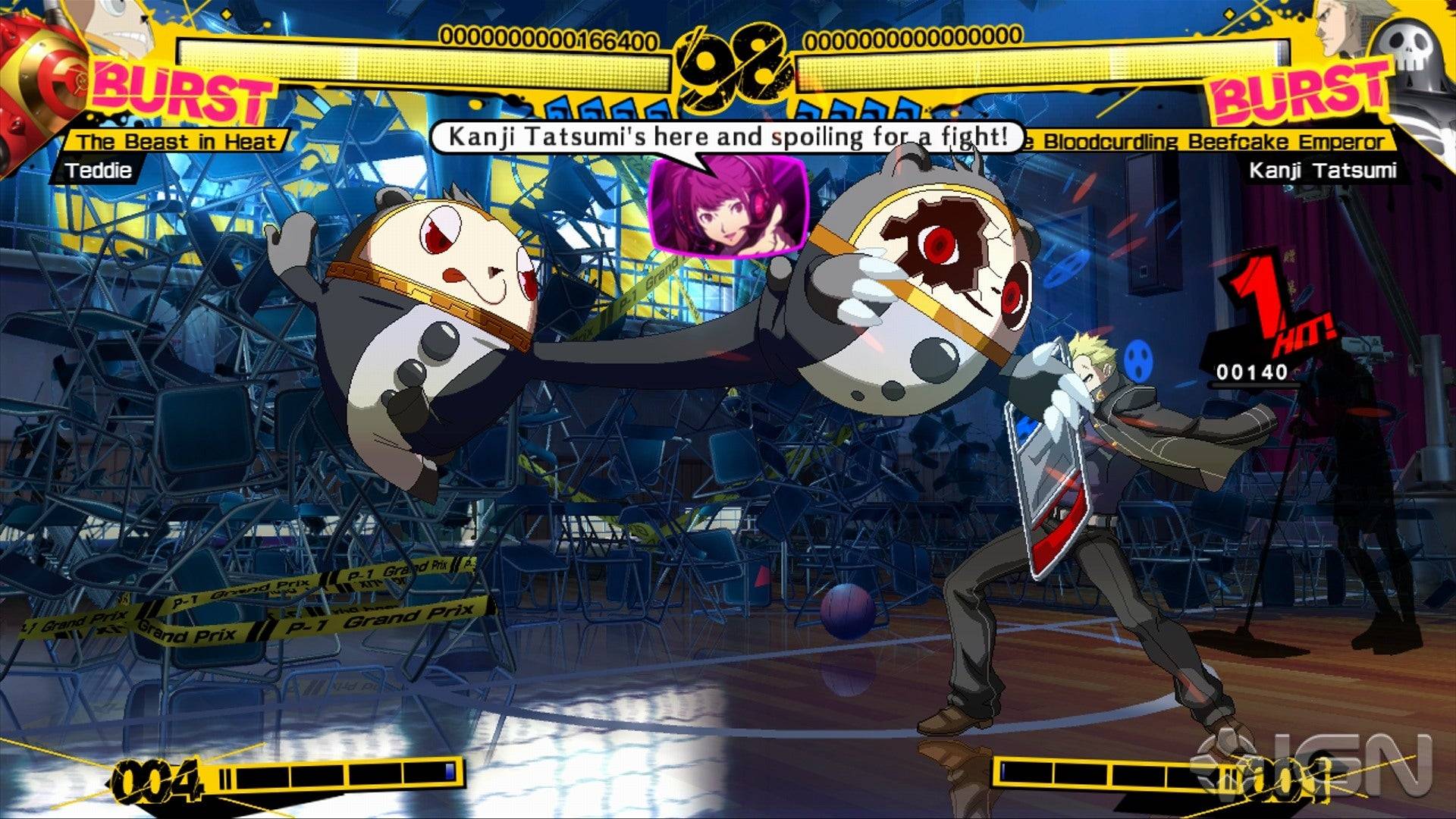
A fighting game spin-off that continues the narratives of Persona 3 and 4, Persona 4 Arena sees Yu Narukami return to Inaba for a mysterious fighting tournament in the TV world. Players control iconic Persona characters in battles against allies and the Shadow Operatives from Persona 3.
Read our review of Persona 4 Arena.
9. Persona 4 Arena Ultimax (2013)
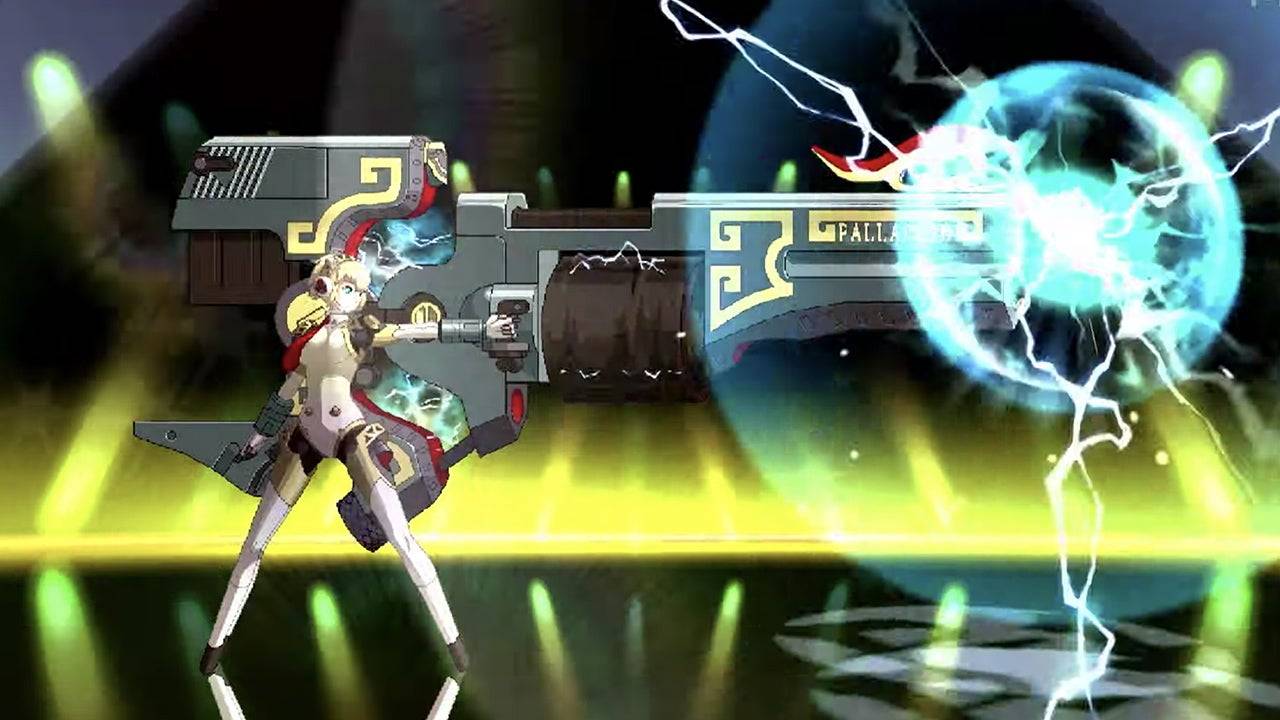
Following the events of Persona 4 Arena, Ultimax expands the roster and continues the story as the Persona 4 squad and the Shadow Operatives battle in the TV World. It introduces returning characters and enhances the fighting game experience.
Read our review of Persona 4 Arena Ultimax.
10. Persona 4: Dancing All Night (2015)
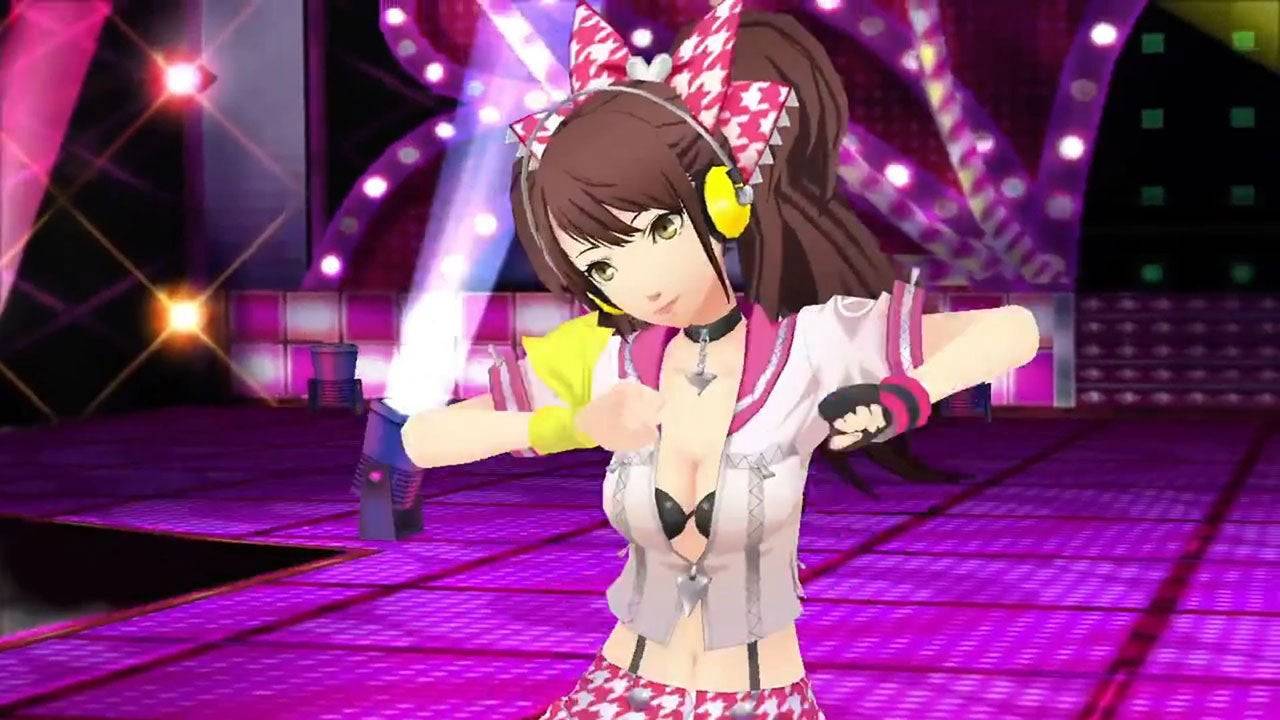
This rhythm-based dancing game continues the Persona 4 storyline, with the Investigation Squad performing routines in the Midnight Stage, an alternate dimension. It's a canon continuation of the series' narrative.
Read our review of Persona 4: Dancing All Night.
11. Persona 5 (2016) / Persona 5 Royal (2019)

Set in Tokyo, Persona 5 follows protagonist Joker, who, after being framed for a crime, discovers a supernatural realm where he and his friends, the Phantom Thieves, infiltrate palaces to change the hearts of corrupt individuals. The game's success propelled the franchise to new heights, introducing new mechanics like Mementos and the negotiation system.
Read our review of Persona 5 Royal.
Alternate Versions of Persona 5:
Persona 5 Royal, an expanded re-release, adds new content including a companion, dungeon, and semester, making it the ultimate version of the game.
12. Persona Q2: New Cinema Labyrinth (2018)
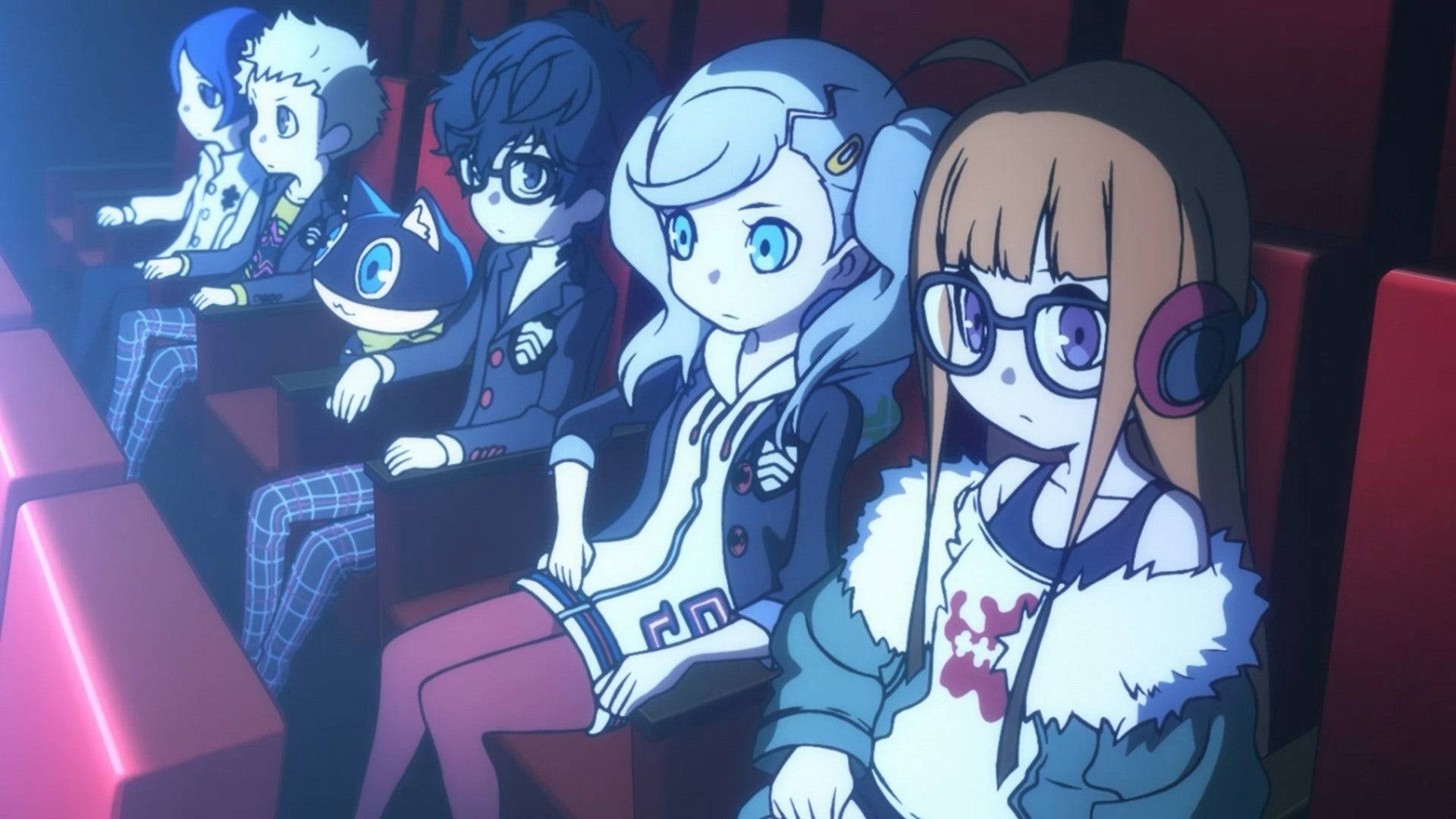
A sequel to Persona Q, New Cinema Labyrinth features a crossover of characters from Persona 3, 4, and 5, trapped in a movie theater and exploring movie-themed dungeons. The game blends the timelines of the three mainline entries, offering a unique narrative experience.
13. Persona 5 Tactica (2023)
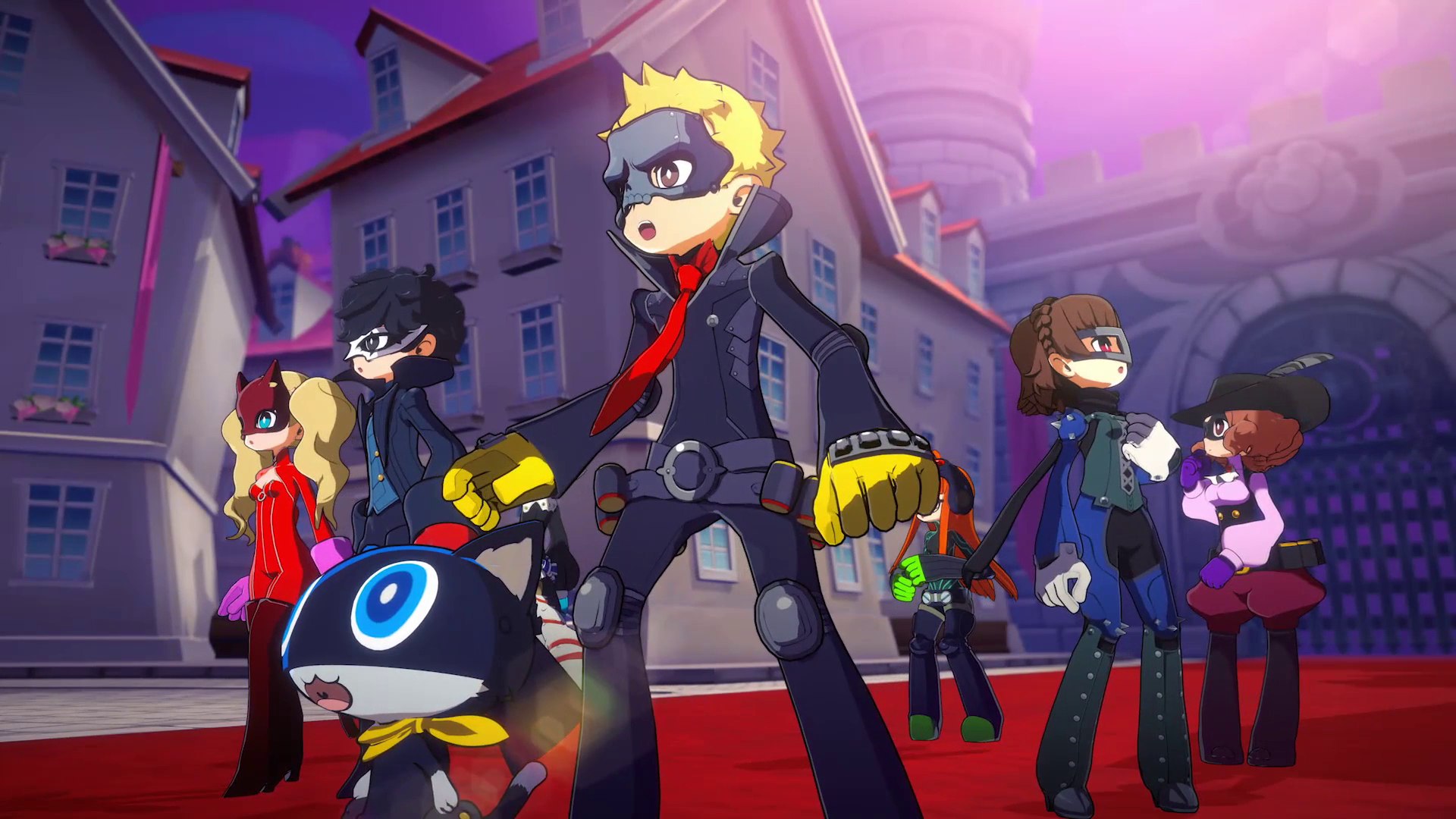
Set during the events of Persona 5, Tactica is a strategy-focused spin-off where the Phantom Thieves navigate the Kingdoms, an alternate realm. Players engage in tactical grid-based combat, directing units to battle enemies and rescue brainwashed allies.
Read our review of Persona 5 Tactica.
14. Persona 5: Dancing in Starlight (2018)
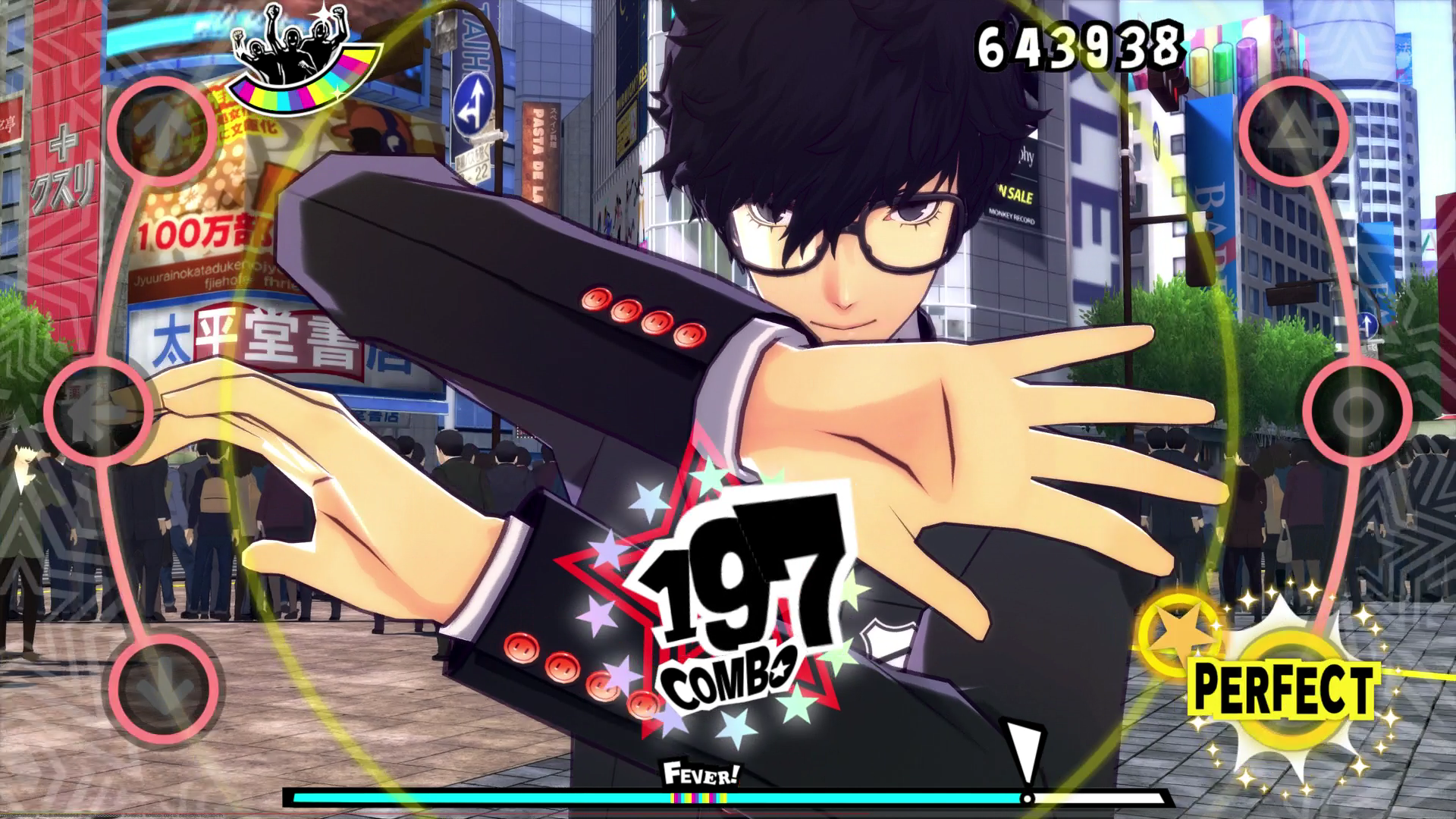
In this rhythm-based dancing spin-off, the Phantom Thieves are challenged to a dance-off in the Velvet Room, performing routines to Persona 5's iconic tracks.
15. Persona 5 Strikers (2020)
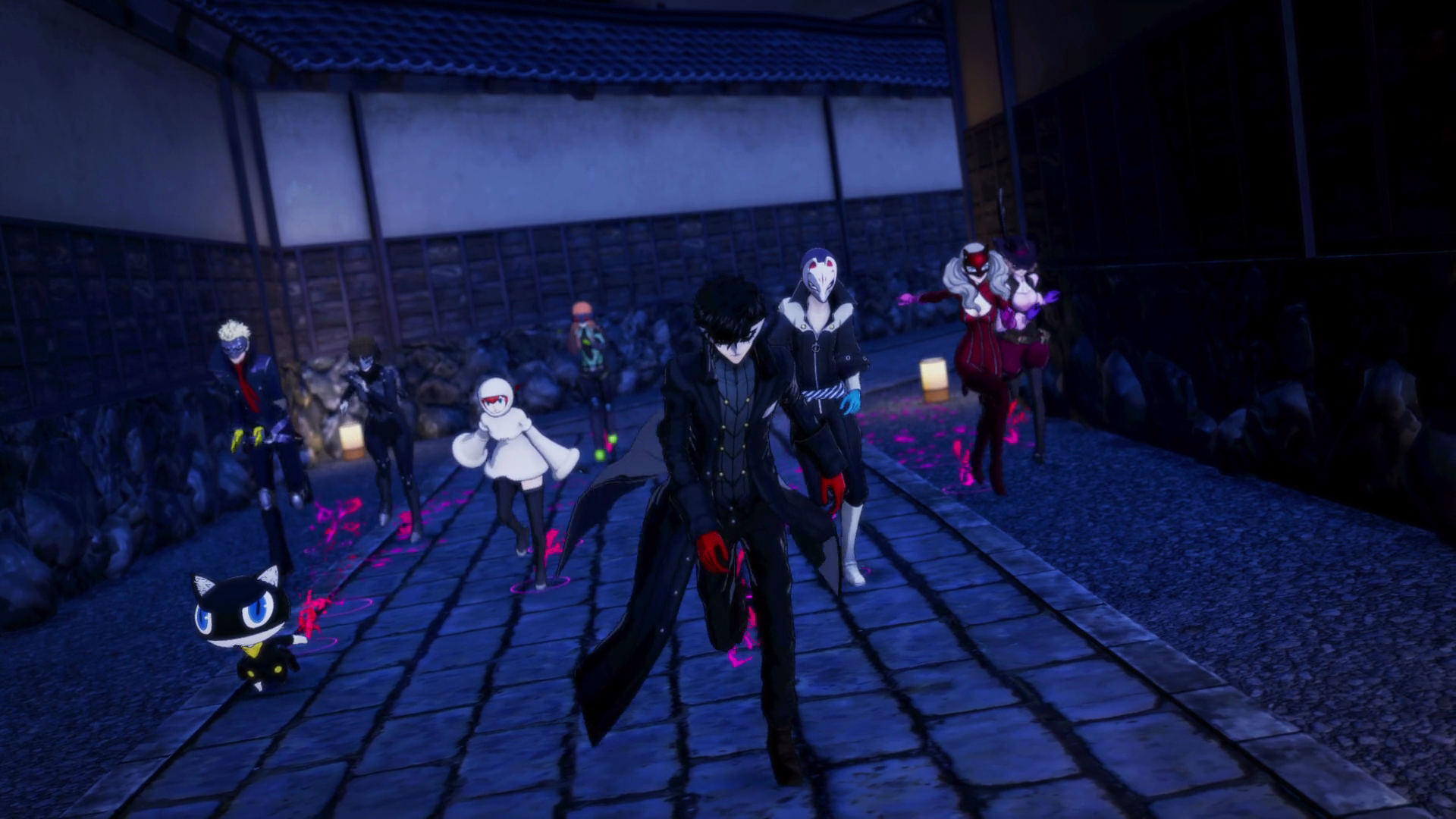
Set four months after Persona 5, Strikers reunites the Phantom Thieves for a summer vacation that leads them back into the Metaverse. This spin-off introduces real-time combat inspired by the Dynasty Warriors series, featuring large-scale battles and Persona abilities.
Read our review of Persona 5 Strikers.
Every Persona Game and Spin-Off in Release Order
- Revelations: Persona (1996)
- Persona 2: Innocent Sin (1999)
- Persona 2: Eternal Punishment (2000)
- Persona 3 (2006)
- Persona 3 FES (2007)
- Persona 4 (2008)
- Persona 3 Portable (2009)
- Persona 4 Arena (2012)
- Persona 4 Golden (2012)
- Persona 4 Arena Ultimax (2013)
- Persona Q: Shadow of the Labyrinth (2014)
- Persona 4: Dancing All Night (2015)
- Persona 5 (2016)
- Persona 3: Dancing in the Moonlight (2018)
- Persona 5: Dancing in the Starlight (2018)
- Persona Q2: New Cinema Labyrinth (2018)
- Persona 5 Royal (2019)
- Persona 5 Strikers (2020)
- Persona 5 Tactica (2023)
- Persona 3 Reload (2024)
What's Next for Persona?
In 2024, fans of Atlus RPGs enjoyed two major releases: Persona 3 Reload and Metaphor: ReFantazio, a new RPG from Atlus's Studio Zero. Following Metaphor's success and numerous awards, Sega expressed their commitment to further invest in Atlus and the Persona franchise during a developers' Q&A session.
The next anticipated Persona project is the free-to-play mobile game, Persona 5: The Phantom X, which launched in China, Taiwan, Hong Kong, Macau, and Korea in 2024. A Japanese release is on the horizon following a closed beta sign-up in October, with a global release expected, though no official date has been announced. The Phantom X offers an original story set in the Persona 5 universe, featuring new characters who become the Phantom Thieves.
Persona 6 is the eagerly awaited next mainline entry in the RPG series, though Atlus has yet to officially confirm its development.

 Latest Downloads
Latest Downloads
 Downlaod
Downlaod




 Top News
Top News